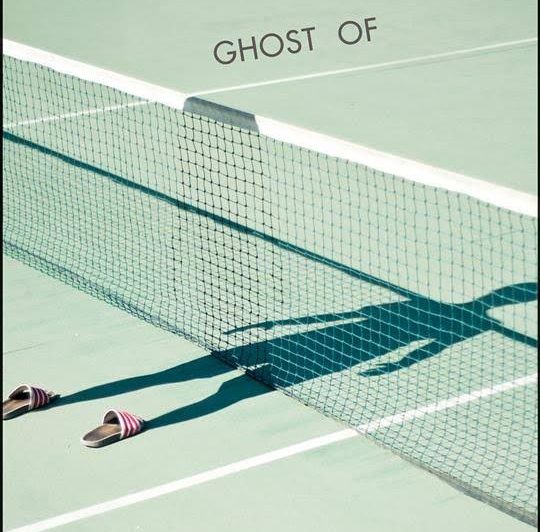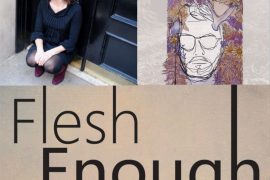I finished reading Ghost Of when my grandmother first entered into hospice care. I was searching for a particular grammar of grief—one that knows the contours of immigrant pain but also one that does not wallow in it. Make no mistake: Nguyen dwells in the loss of her brother, yet this dwelling is not in received forms. Instead, her book’s project is to witness that loss by grasping toward forms that best inhabit it—porous and fragmentary without lack. Rather than confinement, “it is empty. I empty it,” she writes. Can the act of emptying be one of fullness?
I dreamt that night after I finished reading Nguyen’s volume. I dreamt of fish, which in my mother tongue, rhymes with the word for plenitude. A repeated collage form that emerges throughout Ghost Of is the gyotaku (魚拓, literally “fish” “rubbing”), a reference to the traditional art form of making an inked print of a caught fish. Historically a practice used to document a fisherman’s catch, it has since become an artistic tool for marine conservation. Gyotaku, in its various methods of applying the fish directly or indirectly to the paper, preserves the literal traces of life in its making. Nguyen uses this form to similar ends: both a documentation of her brother’s absent presence and her family’s mourning but also a poetic attempt at conserving his life. Nguyen’s five “Gyotaku” combine both black-and-white photography with Oliver’s form cut out of them and textual fragments that assume the form of those cut-out shapes. Every part of the gyotaku is a poem in and of itself. Despite the speaker’s insistence on emptiness (“The world without me / is the space in this room”) and “framing, an act of enclosing, of closing off yourself from your environment,” the collection is suffused with language exceeding line and stanza—a fullness of a life not cut short by suicide but instead continuing to spill over beyond the edges of the frame, the text.
Haunting is often understood in terms of a spiritual remnant—of a life left behind, or unfinished business coalescing into a revenant. Nguyen instead suggests she and her family are the ones left behind, the ones made ghostly by her brother’s abrupt parting. “Because, despite everything, you hadn’t lost your hunger, eh?” the speaker asks in “A Necessary Death in Broad Daylight.” They become a family of hungry ghosts in their mourning, and the verses in Ghost Of become acts of veneration that, like joss paper, are burned to feed a hunger that exceeds the earthly: “What if he did not depart—but we who gathered around him?” Their haunting transcends the singular event of Oliver’s suicide, as haunting intergenerationally moves across bodies and histories. It is frightening precisely because of its unceasing intersubjectivity, its dismissal of any fantasy of an individual unbounded by other lives. Avery Gordon distinguishes haunting from trauma where the former
“is distinctive for producing a something-to-be-done…it seemed to me that haunting was precisely the domain of turmoil and trouble, that moment (of however long duration) when things are not in their assigned places, when the cracks and rigging are exposed, when the people who are meant to be invisible show up without any sign of leaving, when disturbed feelings cannot be put away, when something else, something different from before, seems like it must be done.”
The hunger for something-to-be-done with the trauma of loss and war becomes the work of poetry, even with the knowledge that “this is the math of it: nothing native stays.” The irony, of course, is that so much ends up “staying” and lingering in “the distance / between sugar stores [that] is grief.” Not a melancholy stuckness, but an active longing that “must not be consoled” because haunting and mourning require work.
A consequence of haunting’s displacement is not only its exposure of the very “cracks and rigging” of a life but also its unexpected invitation to reimagine what can come after loss. The lesson of haunting is that living is a persistent act: “Still, every living body finds a routine / no matter its damage.” While we often “are left to hurtle alone,” the work of living remains. Among poems preoccupied with pastness—unruly in its reanimation—Nguyen speculates on futures of (or after) haunting: “In the future / is it possible to alter the half-lives of isotopes? // I cannot see the future / for myself or any of my doubles / but I see the days ahead of him.” Finding herself filling the roles of a son, a brother—what was “lost as collateral [that] is also a gift”—she lives out Oliver’s future beyond the course of a singular life. I am growing still and wi / ll fill in for you, fill you in u / until the end; I will never give you up I will ne / ver give up / I will never





